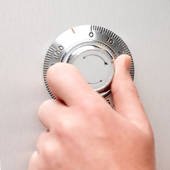I wanted to die.

This is an updated post that originally appeared on my blog at strangerarray.wordpress.com.
Looking back, the situation was not all that bad…
But at the time it seemed terrible.
I was working, going to school, and doing who knows what else.
I was was too busy.
I am always too busy.
At that time I was sleeping 4 hours a night.
I drank coffee by the pot.
I probably was training for my first half-marathon.
And I was looking for love in all the wrong places.
The thing about it was that being sleep deprived, emotional turbulent, and stressed out caused me to not be thinking straight.
Fortunately for us, now I am better equipped to handle things when I realize I am overextended.
I have learned how to handle my emotions better.
One by admitting I have them….
Two by being more aware of my thoughts and how this happened you’ll see below.
The thing is that I often get distracted by things and sidetracked and then as a result get overextended.
This probably happens from starting something new before finishing the previous thousand things I started.
It comes from enthusiasm and energy.
But ends in stress.
I find these distractions sometimes tend to be objects that are immovable and not helping me get done what I need to get done. Other times, it is not distractions that are causing me to have too much to do, but rather it is curiosity and ambition.
I like to explore and take on all sorts of things.
One time I was going to learn Greek.
Yeah that didn’t exactly happen.
I started.
Learned a very little.
And then moved on to the next thing that piqued my interest.
This isn’t such a bad thing.
But when I “hit” on many things that I like and want to keep doing them I soon turn around and am involved in way too much!
That is why I decided I needed to come up with ideas on how to dial back things when I was overextended.

Here are 16 ways I’ve found help me dial back when things get to be too much, maybe they will help you, I don’t know…
1. Go to bed a little earlier and get up earlier
An extra few minutes can turn a rushed morning into a little bit more relaxed.
I like to have some breathing room so in case I spill my coffee all over myself, which I do from time to time, or anything else doesn’t go “just right” I will be okay.
Getting to bed a bit sooner allows me to relax into sleep and not feel that I have to “get to sleep” as soon as my head hits the pillow.
These little bits help me turn down the stress levels just a little, maybe say 1 or 2 degrees, but that can make the difference in a day.
2. Spend a few minutes reading, relaxing or playing a game
Again this might not fix everything, but a few minutes here and there can improve overall quality of life and get me going again. To spend a few minutes doing something I enjoy can be motivating and reinvigorating.
3. Identify an activity/task I do every day that takes a good amount of time and find ways to make that task easier and less time consuming
One example is cooking simpler meals with less ingredients.
I love eating and have a taste for the finer things in life.
But an everyday dinner does not have to be gourmet.
The thing I always like to remember is that this is just one meal out of hopefully thousands that I will be eating in my lifetime.
If it isn’t all that amazing, that’s okay.
4. Choose 1 to 2 of the most important extra-curricular activities in your life right now and do those, for everything else, write it down to look at doing later
Establishing priorities helps me scale back when things get to be too much.
One way I can do this is by writing them down and looking at the list when deciding on future commitments. I can see the things I want to get around to doing and see the things that I think are the most important tasks or activities that I want to spend time doing.
Then I put on hold everything else.
Some things I come back to, some I don’t.
Like the Greek.
But I don’t know the future so maybe I will pick it up again…
5. Declutter life
The less I have, the less I have to organize, upkeep, clean.
One way to help with this though is not to spend too much time all at once on decluttering. Or this can be a thing in itself that takes up more time. Instead I can go day by day or room by room and identify and get rid of a little at a time.
Ultimately this is something that I put off or at the end of my list often.
But when I do it, I enjoy the results.
6. Say “No” more often
Making fewer commitments from the start can help distress my life.
This may seem obvious, but I need to be reminded to actually follow through in doing this.
The payoff too is that when making fewer commitments, it can allow me to have an increased commitment to something else that I find to be more important.
7. Exercise less
I used to spend up to an hour a day exercising.
Then I found out about a program that has 30 minute exercise videos. I love it and it has gotten me into great shape. But I am not selling this program so I’ll leave it at that.
The thing is I’ve been so busy lately that I haven’t been exercising much at all.
Then I start feeling bad physically.
To help me get back into it I have been turning on the video and “doing my best and forgetting the rest”.
I’ve actually started listening to this tip and so sometimes I just skip the moves I don’t like.
Or stop early.
Sometimes I end up only doing about 20 minutes.
Now this isn’t great for all exercise needs, but here and there this helps and is better than doing nothing at all…
8. Change perspective
“Wants” become “needs” when I want them bad enough.
The trick is that I have to stop and really identify what it is that I am doing.
Why am I doing “X”? Was it because I had to do it or because I wanted to do it?
Changing the way I see things helps me determine if I am overextended or think I am overextended.
Sometimes that is part of the deal right there.
I don’t have too much to do, I just think I do.
Or I might have the time, but I am procrastinating, leading to the need for…
9. Discernment
Getting discernment through prayer and accountability helps me get that perspective in line.
Sometimes I can be blinded by my own ambition.
I am trying to do things to do them and don’t really know why or if I should be doing them.
Prayer and meditation allows for a quiet reflection.
10. Manage commitments better
When it is time to make a change I need to manage my commitments better.
Sometimes this means humbling myself and getting help from someone with more experience or anyone who will lend a helping hand.
Or taking a break from a task, like I mentioned above.
Scheduling also helps keep things in order.
Using the calendar app in my phone has helped me know when I can or can’t commit to things and reconsider saying “yes” without a better plan.
Also it is the best way for me to spend time with those I care about.
Making a plan works 100% of the time 80% of the time.
11. Get uncomfortable
Finding imaginative solutions for minimizing current commitments is another thing I do from time to time. While it is not the number one go to choice, breaking commitments is a way to get some control back in my life.
It may disappoint someone when I reschedule.
But sometimes at the moment, I just have to call the whole thing off to catch my breath.
Finding ways for to soften the blow helps if it is a commitment that involves other groups of people. For instance, I can consider how I could be replaced or phased out of something to minimize the impact my decision has on the group.
12. Become intentional about my energy
I have wasted enough time on trivial pursuits.
Not the game, but things that don’t improve my life.
These usually are things Mark Ford has called “zombie tasks”.
When I kinda zone out watching TV or clicking around Facebook for no reason…
Then I realize I have spent more time than I intended and have not done what it is that I meant to do.
The choice to be intentional with my energy gives me back some illusions of control.
This works best when I…
13. Stay focused
I’ve written before on the dirty “M” word.
Multitasking.
This is thrown about as a good thing.
Or a thing people in my generation are “comfortable” with.
I don’t think this is good.
Doing things distracted and haphazardly makes them take longer and usually ends with poorer quality work.
This is bad for everyone.
14. Loosen up
I am working on not considering relaxing as laziness.
This mindset of productivity has been programmed into me. I feel that I have to be productive and that means being busy or doing something of value.
Having some pleasure in life is good.
Relaxation relieves stress which lets me enjoy the moment.
It can also help me have a better focus on what is important.
Nowadays I take a nap when I am tired.
Or breathe deeply when I am stressed.
Meditate when I can find the time.
No one ever died thinking “I wish I spent more time being busy…”.
15. Know when to hold them
I have found that I have my more productive times early in the morning.
I could stay up and work for two hours and only write a paragraph or two.
Or go to bed and wake up and write this whole post.
It really comes down to knowing what times work best for me and then finding ways to do things that are important to me during those times.
Some people call this flow.
16. Disregard it
If something is bad for me I try to quit doing it.
Getting rid of bad habits or negative behaviors frees up time, money, and allows me to enjoy the good things more.
Sometimes I try to hold on to things that are destructive because I think I like them.
Then when I think about it, I am only doing it because it is “supposed to be” fun or enjoyable.
When things don’t suit me I work to stop doing them.
